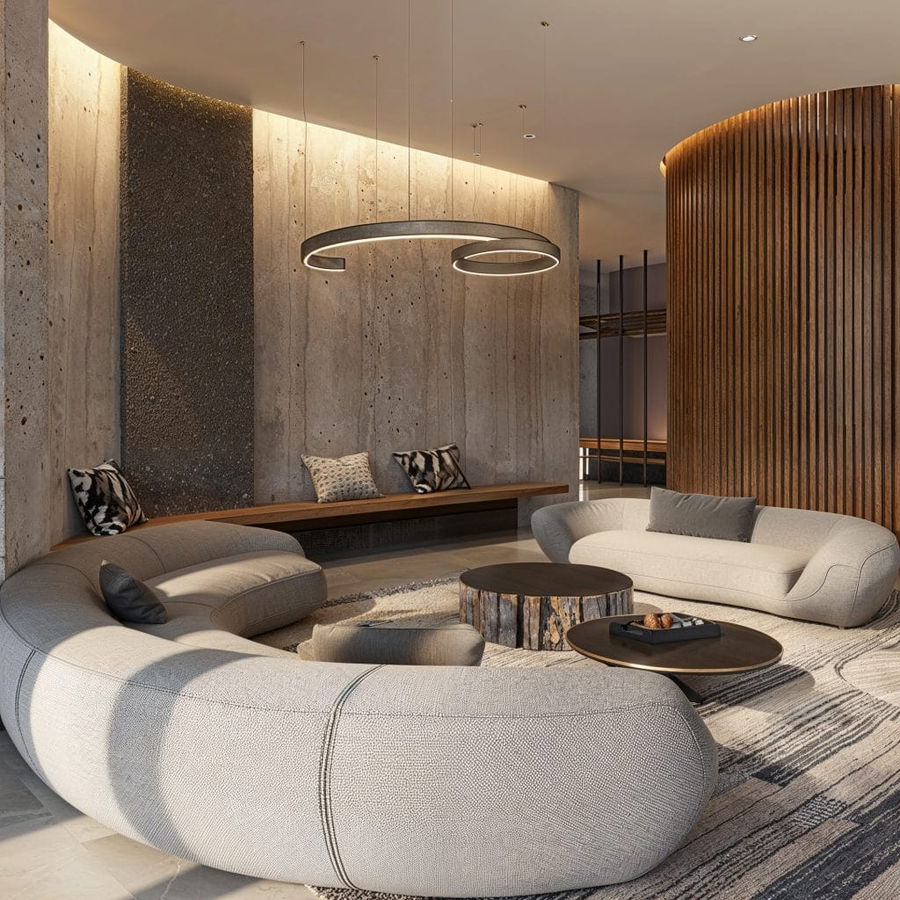
Do you believe in a “less is more” motto? The concept behind minimalism, often summarized in essentials in space, is a way to foster orderliness in our minds. Pretty desirable, isn’t it? So read on to dive into the components of a minimalist interior design and breathe a breath of fresh air into your space and in your mind!
1. Think Function First in Minimalist Interior Design
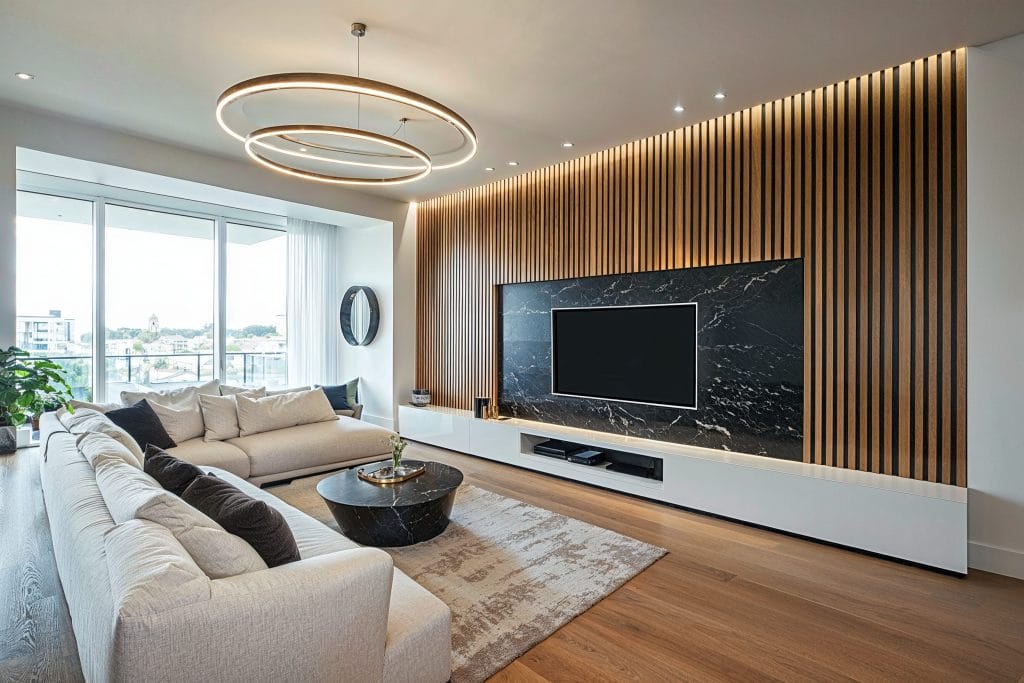
The transition to a minimalist home interior (as any other interior transformation really) has to be done with function in mind. In order for the space to foster serenity in your mind, it has to be accessible and easy to use in the first place!
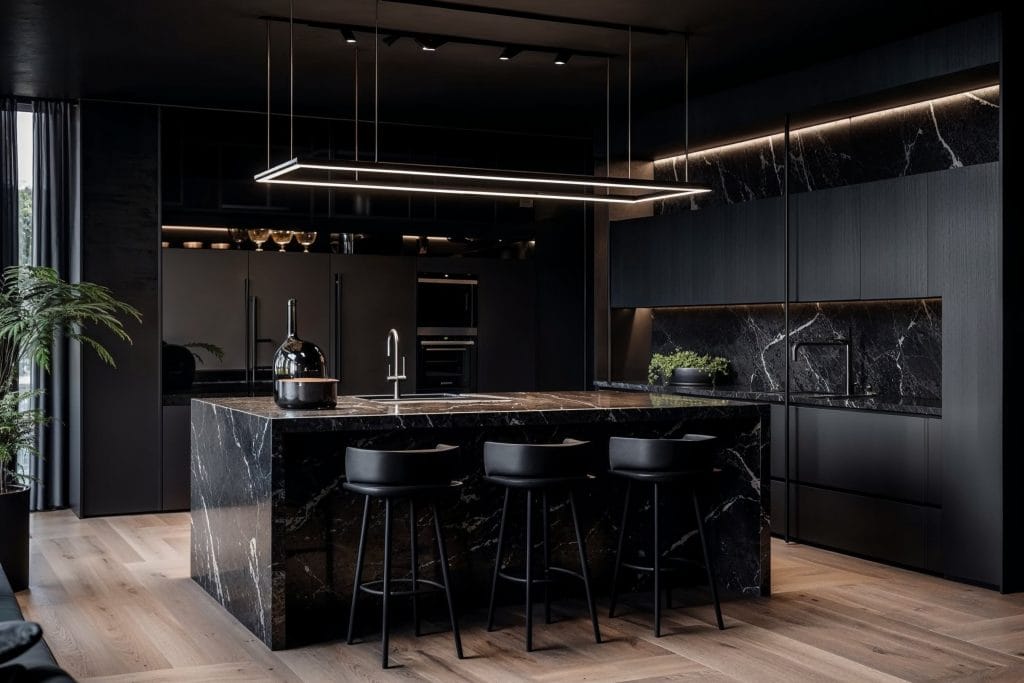
Set the goal of creating a minimalist layout to make things more readily available when you need them. Start then by assessing all the things that are not functional in your home and think about how you could solve them. This could also bring you to establish some better new habits s a result.
Pro Tip: Keep a basket in each room for all those tiny items that should not just lie around.
Not sure if minimalist interior design is right for you? Take our Free Interior Design Style Quiz to help discover your perfect style today!
2. Plan your Storage
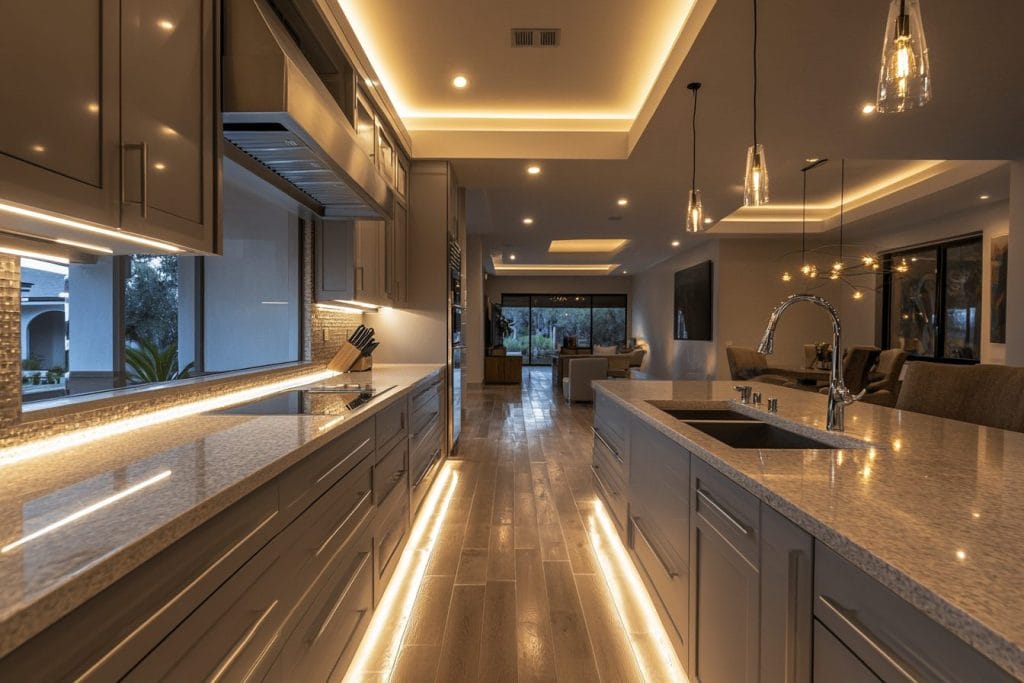
A minimalist interior design has zero tolerance for clutter. But our daily lives are full of objects that often end up in random places. For that reason, we’re constantly searching for new entryway ideas, ways to organize things on the kitchen counter, and many others.
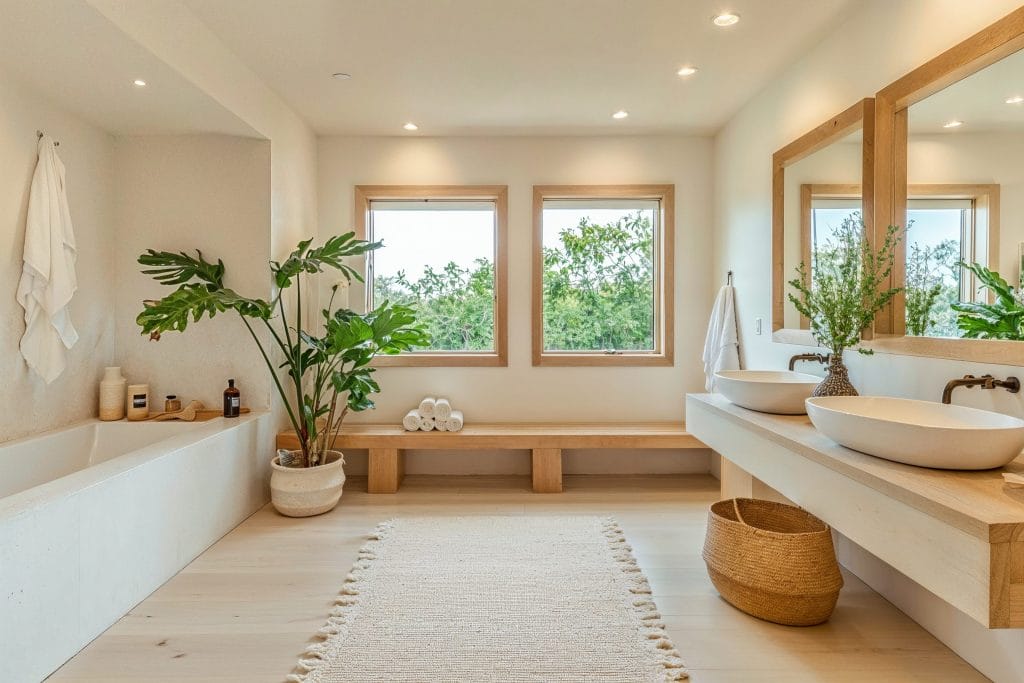
To make the transition to minimalism easier and more sustainable in the long run, think about your storage habits. If the entryway console is an easy place for you to leave your things, prepare a box to store them. You will still get all the practicality, just in a more appealing way.
Pro Tip: Re-think your storage in a way that is both easy for you to maintain and can keep the clutter out of sight.
3. Details Count in Minimalist Interiors
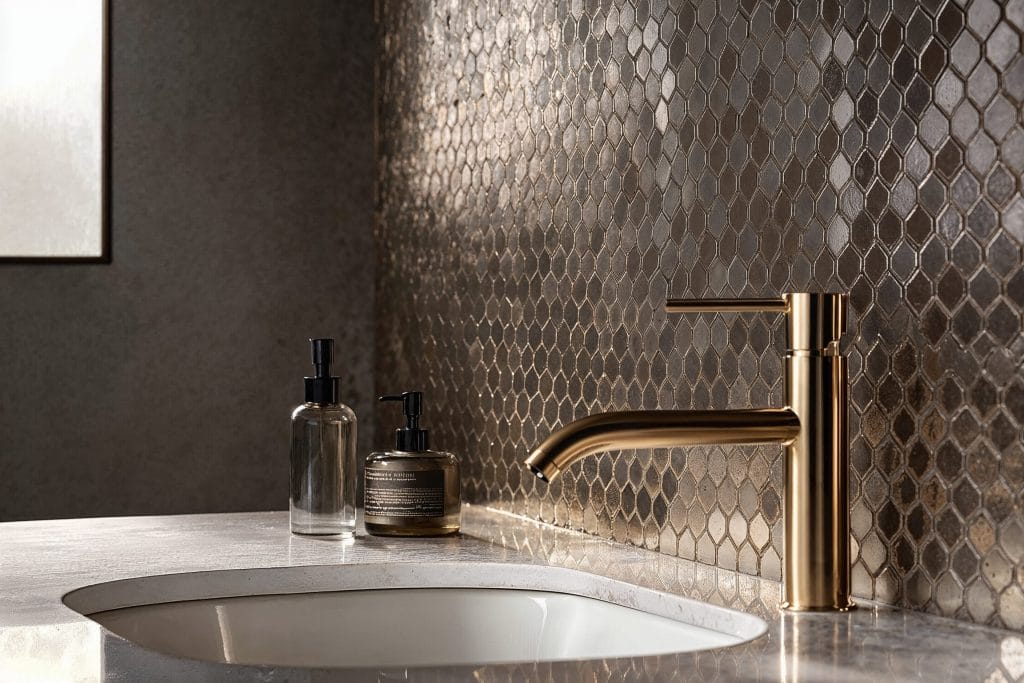
What is always a paradigm of interior design holds even more true in minimalism. In a minimalist interior, there are very few items in sight, and those have to be studied carefully to convey the exact message you want them to. It does take a bit of thinking, but the result will be very rewarding, as the items on display will gain even more importance with less visual clutter around them.
A great way to create an attractive minimalist interior design is by joining décor and function. Think about a stunning light fixture above a dining table, for example: besides being certainly functional, it will add tons of character to the space and may even become a focal point.
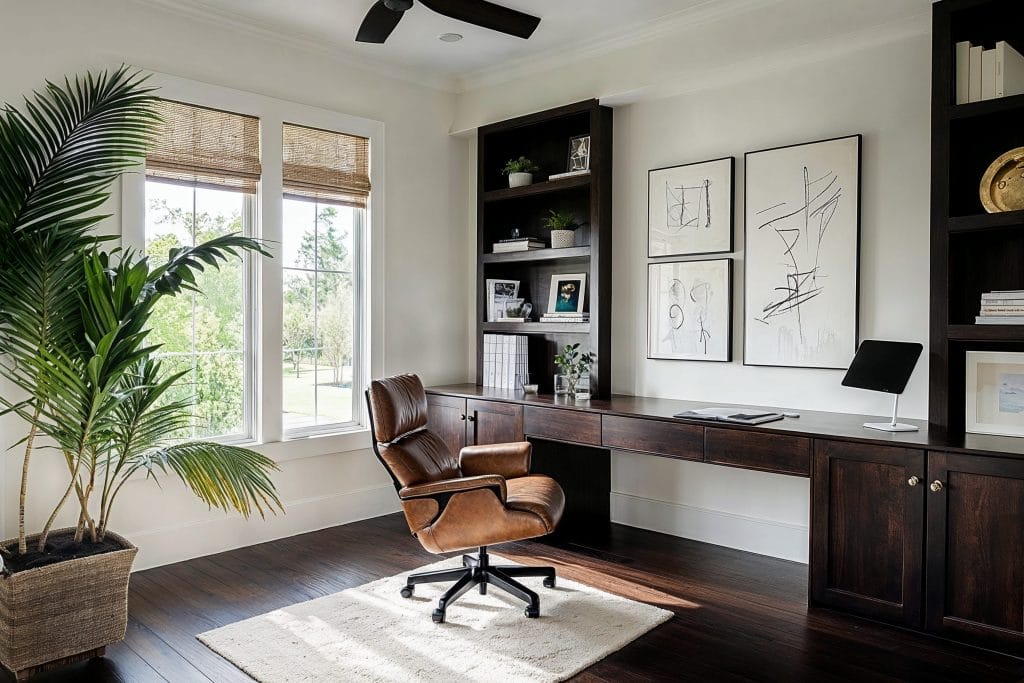
Pro Tip: Use statement pieces in your contemporary minimalist makeover sparingly. One bold object—like a sculptural chair or a unique pendant light—can define the room.
4. Be Diligent with Your Color Scheme
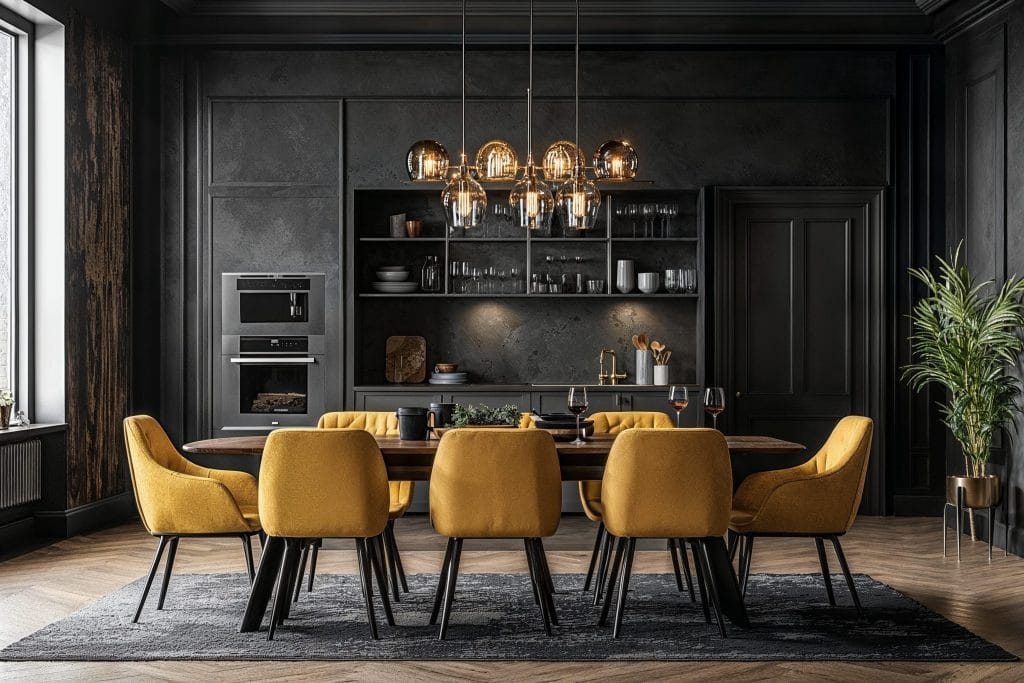
Minimalism means order, and this is true for colors as well. Many unconnected colors in a space do create visual clutter, which is as harmful as physical clutter.
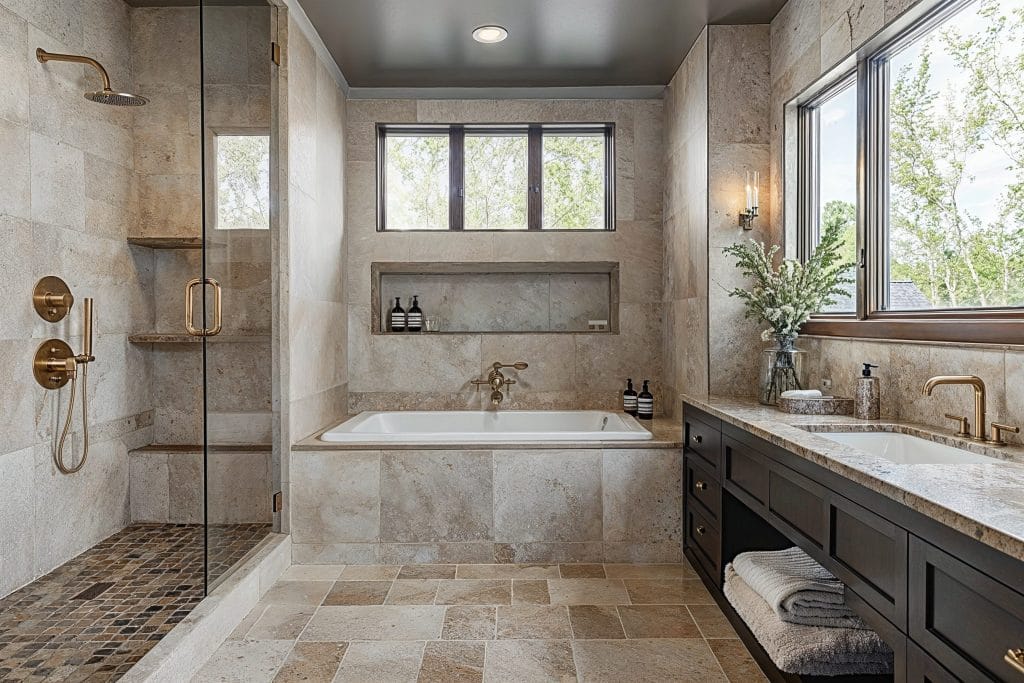
Transitioning to a minimalist home interior design is the best moment to choose a defined color scheme and stick to it. This does not mean everything has to be beige or white, though; you can totally go for accent colors as well! But once the palette is chosen, you need to commit to it.
Pro Tip: Stick to one or two accent colors to maintain the clarity and calm of the minimalist space.
5. Minimalist Interior Design Ideas: Texture is Your Friend
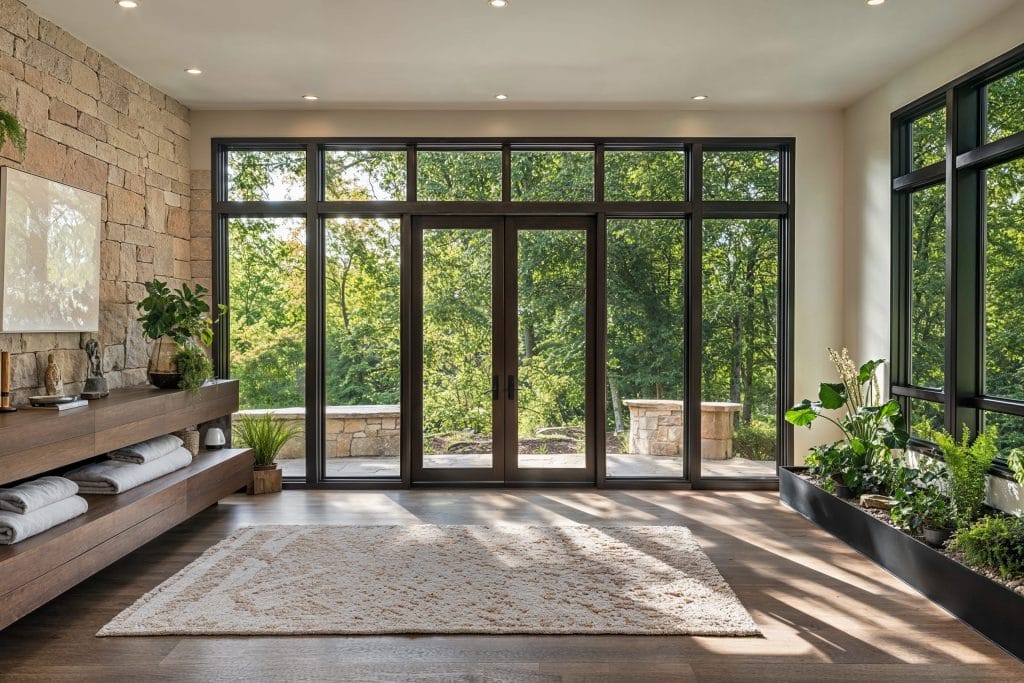
So, if you need to hide all the clutter and just have very few pieces in sight, is this not going to become a boring room? Not necessarily! Mixing different textures is a fantastic way to infuse it with visual interest and movement while still sticking to minimalism.
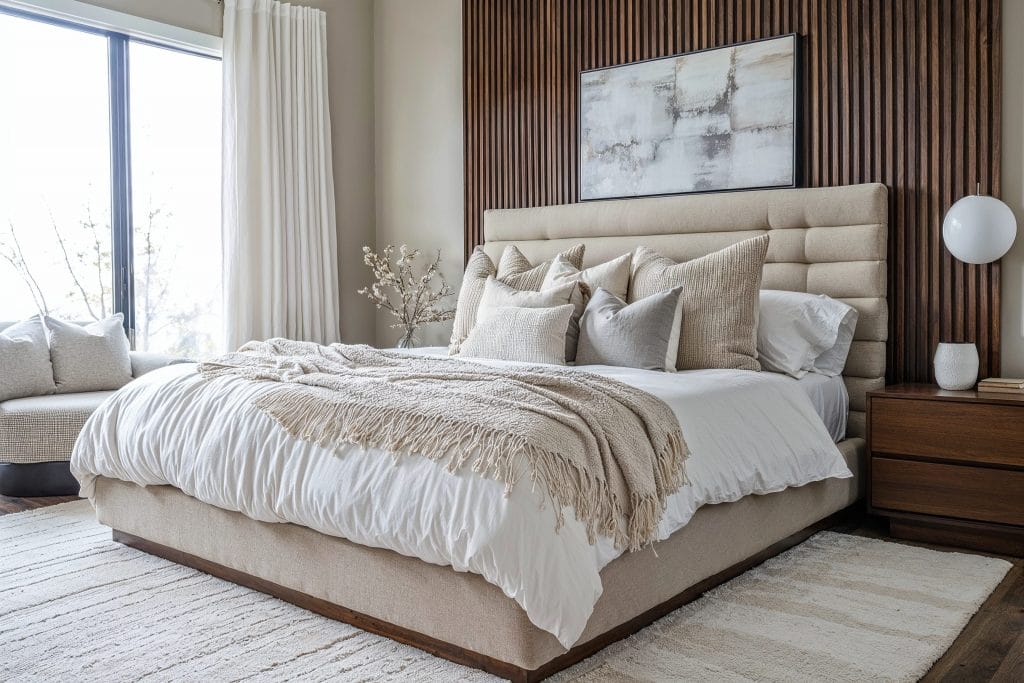
By layering smooth stone, rough or reeded wood, and soft textiles—you infuse the space with tactile diversity that also catches the eye. These subtle contrasts ensure the room feels dynamic, not sterile, even when the decor is kept to a minimum.
Pro Tip: Pair sleek metal or glass with organic elements like wool or raw wood to bring harmony and character to the space.
6. Leave Some Empty Space
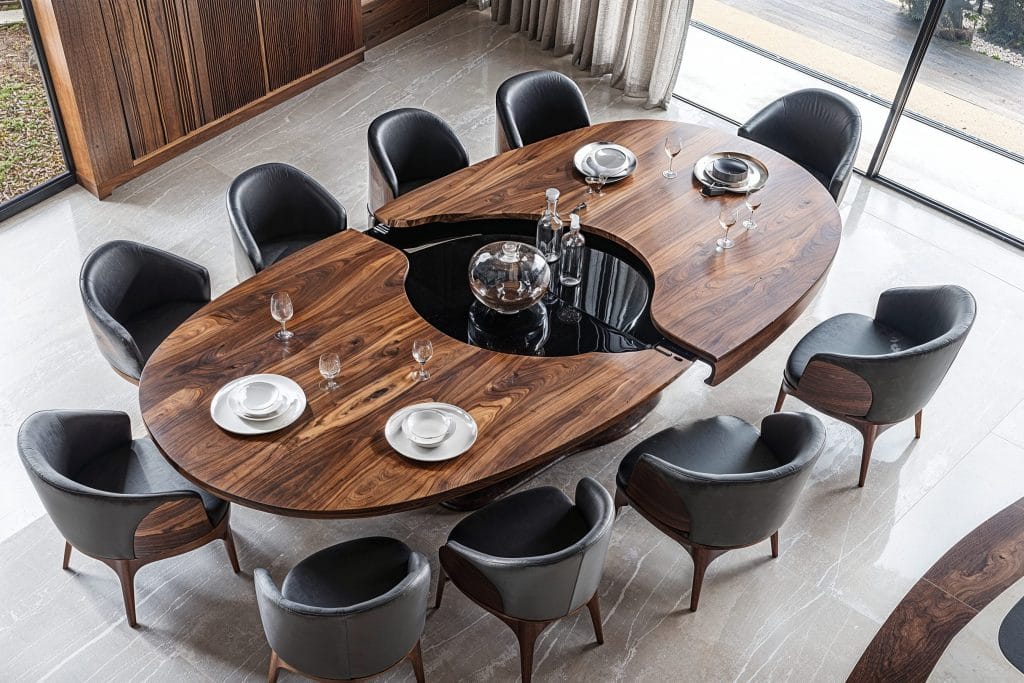
In a minimalist apartment design, empty space is part of the interior. Clean walls or free corners all contribute to airiness and lightness. But empty is not a synonym for bland! Instead of filling every inch, this is about letting the absence speak as loudly as the presence of objects.
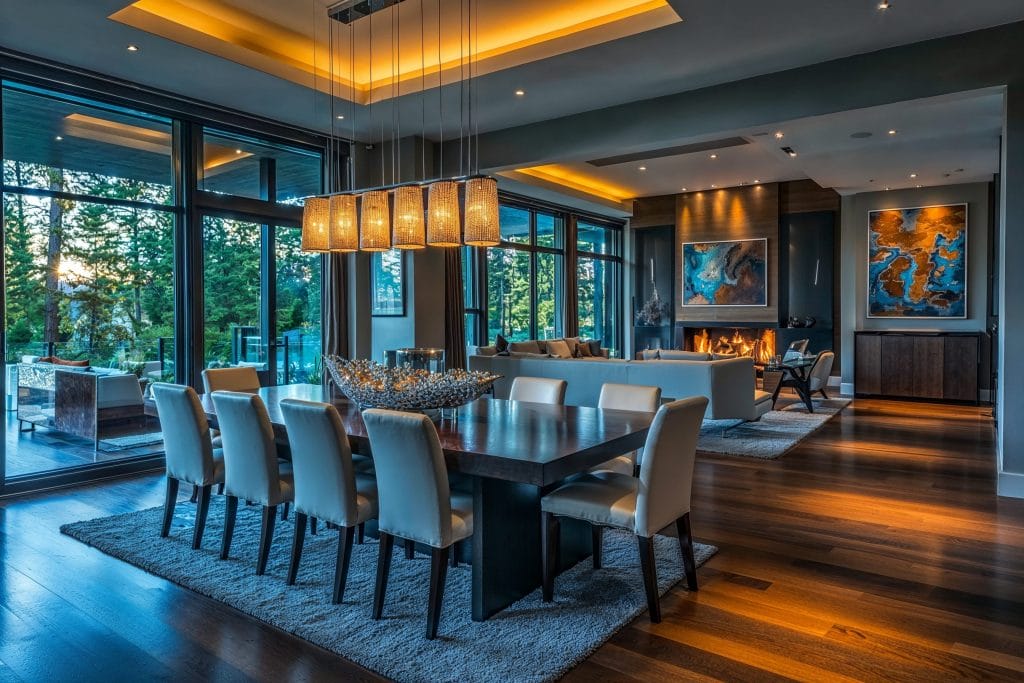
Embracing empty space allows the room to breathe, drawing attention to the architecture and design elements that remain. A wall without anything hanging on it can still be extremely interesting when painted in the right shade, while a free corner will highlight the beauty of your flooring.
Pro Tip: Balance is important—arrange furniture and minimalist home decor to leave intentional voids while still maintaining visual harmony.
7. Simplicity is Key
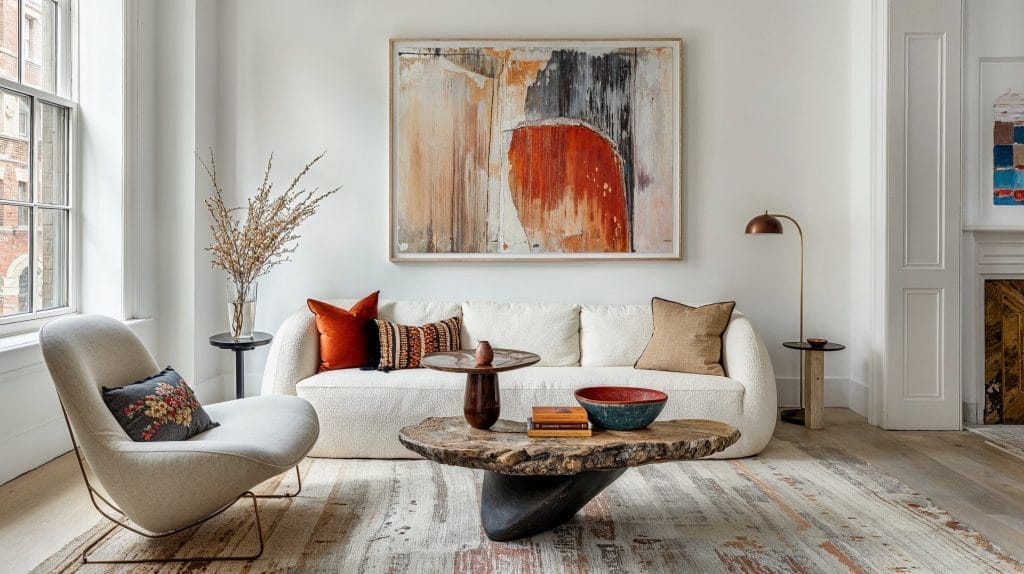
Minimalism is, above all, simple. Incorporating it into your home design means simplifying your furniture, decor, and storage. The goal is to strip away the unnecessary and focus on what truly matters—functionality and aesthetic clarity. When every item in a room serves a purpose, the design becomes intentional, and the space feels effortless.
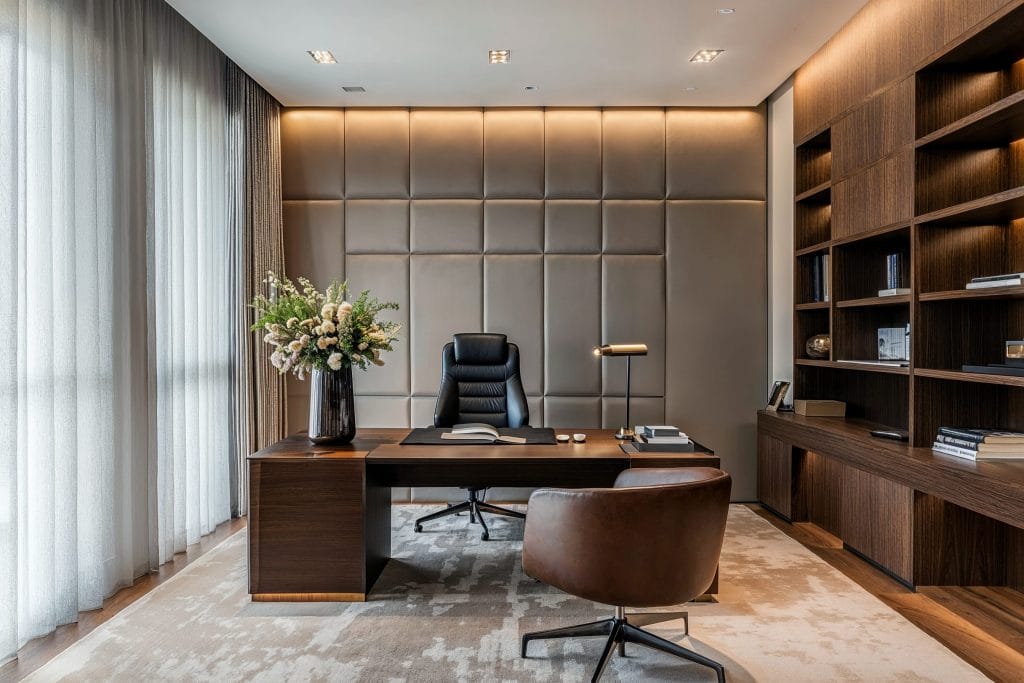
A secret to getting there is curating pieces that bring value. Opt for well-crafted items that complement the space. The fewer distractions there are, the more attention you can give to the quality of each element, genuinely making the most of your budget.
Pro Tip: Look for timeless, versatile pieces that can stand the test of time.
In need of minimalist interior design services?
The simplicity of minimalist interior design is something to admire. If you need some help to make it work in your home, schedule a Free Interior Design Consultation to get started today!









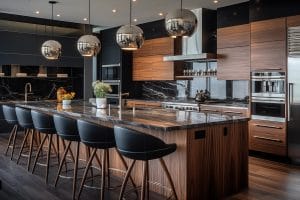
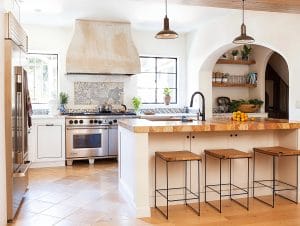
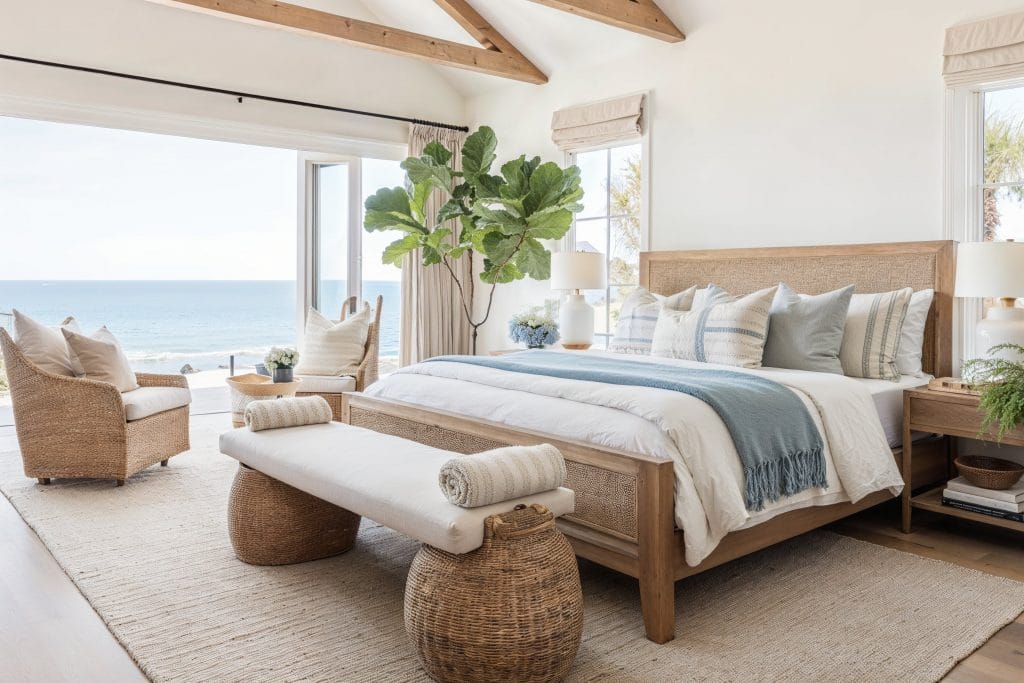
Comments
3 Comments
Most Voted
6 years ago
[…] The concept behind minimalism, often summarized in the “less is more” motto, has a deep meaning at its base. Eliminating the mess and reducing to the essentials in a space is a way to foster the same simplification in our mind. Removing mental clutter, concentrating only on what is essential, is what a “minimalist” state… Read more » […]
5 years ago
[…] doing this, Decorilla.com shares that you’ll have a lot more serenity in your home as well as creating a calm environment for you to live. So before you choose to keep anything that you currently have or buy any new […]
5 years ago
[…] is central to the minimalist interior design style. As a result, furniture’s form is uncomplicated with clean lines, simple finishes and limited […]
[…] The concept behind minimalism, often summarized in the “less is more” motto, has a deep meaning at its base. Eliminating the mess and reducing to the essentials in a space is a way to foster the same simplification in our mind. Removing mental clutter, concentrating only on what is essential, is what a “minimalist” state… Read more » […]
[…] doing this, Decorilla.com shares that you’ll have a lot more serenity in your home as well as creating a calm environment for you to live. So before you choose to keep anything that you currently have or buy any new […]
[…] is central to the minimalist interior design style. As a result, furniture’s form is uncomplicated with clean lines, simple finishes and limited […]